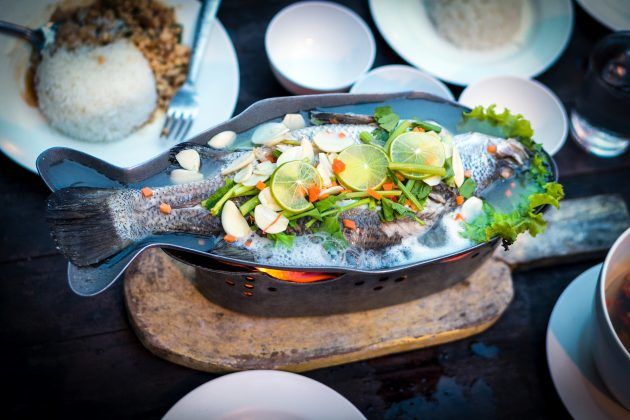We are celebrating Movember we want to help you to be the healthiest version of yourself possible – prostate and all! You already know that diet, exercise and sleep impact your overall health, vitality and sex drive, so I sat down with New York Times Bestselling author, Dr. Natasha Turner ND, founder of Clear Medicine Wellness Boutique, to address specific tips for prostate health.
Dr. Turner, who founded the 5-Week Plan To Reset Your Health and Hormones emphasizes that research related to the hormonal regulation of the prostate has primarily focused on androgen action until more recently. We now see evidence suggesting that estrogen may also play a role in the development of prostate conditions including prostate cancer, one of the most common forms of cancer in men.
She explains that estrogen accumulation can be related to both stress and xenoestrogens — substances that originate outside the body that have an estrogenic-like effect. According to Dr. Turner, these sources can include “meats and dairy (full of synthetic hormones absorbed via animal feed), commercially grown fruits and vegetables grown with pesticides, herbicides, and chemicals like organochlorines) that mimic and displace endogenous hormones from their receptors, petrochemical compounds (cologne, hair spray, room deodorizers) and a diet rich in refined carbohydrates and high amounts of saturated fats.” She adds that excess belly fat furthers supports the production of surplus estrogen and depletion of testosterone.
So what changes can we make to counteract xenoestrogens to promote prostate health? Dr. Turner underscores that both dietary and lifestyle changes can have a significant impact.
“To bring estrogen back into balance, it is ideal to reduce both the intake of exogenous hormones and estrogen production by fat cells and adrenal glands and interfere with the hormone’s ability to bind to tissue receptors. We also need to support the breakdown, detoxification and elimination of estrogen by the liver and colon. All these steps to regulate estrogen metabolism must occur to bring symptoms under control. This can be done with diet:
- Eat buckwheat, citrus fruit rind and pulp (not the juice) and ground flax meal in shakes and cereals. They help to reduce estrogen production and prevent the hormone from binding to tissue receptors.
- Avoid potato chips, caffeine, alcohol, chocolate, sugar, soft drinks, fruit juices, fried or fatty foods, and salt, all of which hamper the process that metabolizes estrogens and eliminates them from your body.
- Eat a low-fat, high-fibre diet to help your intestines eliminate estrogens so they are not reabsorbed into your body. Include plenty of fresh fruits, vegetables, whole grains and legumes (beans, peas).
- Reduce or eliminate red meats; they not only elevate estrogen levels but they also contain the type of fats that worsen the inflammation of endometriosis. Instead, eat fish such as salmon, mackerel, sardines, trout, and tuna, which are high in beneficial omega-3 fatty acids. Range-fed chicken or poultry are also good dietary options.
- Avoid heating food in plastic cooking ware; as plastic is heated, it melts and releases xenoestrogen to the food. Instead, use ceramic CorningWare or glassware.
- Consume pumpkin seeds which are believed to have beneficial properties for prostate health.
Supplements also have the potential to support overall prostate health and reduce negative symptoms like prostatitis and benign prostate hypertrophy:
- Grape seed extract has been connected with the death of cancer cells due to its abundance in bioflavonoid compounds. Other associated health benefits include lower cholesterol, reduced inflammation, blood vessel repair and boosted immunity.
- Vitamin E and zinc provide potent antioxidant protection against oxidative damage to the prostate.
- Vitamin B6 and Vitamin A are recommended along with amino acids are suggested to reduce the abnormal growth of prostate tissue cells.
Dr. Turner also suggests saw palmetto (Serenoa repens), aided by pygeum (Pygeum africanum) which inhibits the conversion of testosterone to its more active and potentially deleterious form, dihydrotestosterone (DHT) which is associated with enlargement of the prostate. Saw palmetto may assist in relieving the urinary tract symptoms of benign prostate hyperplasia such as frequent urination, straining, nighttime waking to urinate or dribbling.
It’s unlikely that you will overhaul your diet to implement each of these suggestions all at once, but you can choose one item to add or eliminate each week. Commit to one, simple change per week and mark it in your calendar to hold yourself accountable in the name of a healthier, happier life.
